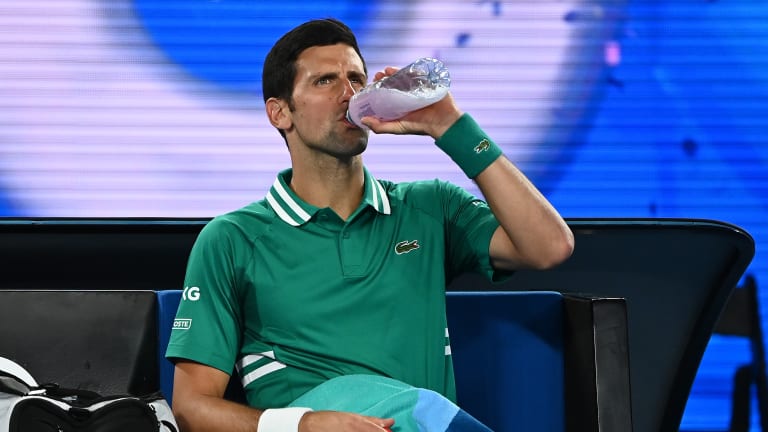Fitness-Nutrition
Novak Djokovic’s mid-match drink stirs internet speculation
By Nov 08, 2022Fitness-Nutrition
Holger Rune credits improved diet for reduced on-court cramps
By Nov 30, 2022Fitness-Nutrition
Luisa Stefani doubled down on recovery before this week's winning return
By Sep 17, 2022Fitness-Nutrition
Enjoy a taste of Daniel Boulud's Miami-inspired recipes
By Mar 23, 2022Fitness-Nutrition
Eat to Win: Novak Djokovic reveals more about his gluten-free diet
By Feb 18, 2022Fitness-Nutrition
Eat to Win: Why you should be eating more bananas
By Feb 03, 2022Fitness-Nutrition
Eat to Win: Fuel up fast on changeovers
By Jan 07, 2022Fitness-Nutrition
Food, tennis on the menu at 2021 US Open
By Aug 28, 2021Fitness-Nutrition
WATCH: Serena joins sister Venus for Instagram workout
By Aug 18, 2021Fitness-Nutrition
Welcome to the Garbiñe Muguruza workout plan
By Aug 05, 2021Novak Djokovic’s mid-match drink stirs internet speculation
His trainer’s efforts to hide the beverage's ingredients raised questions about its legitimacy.
Published Nov 08, 2022
Advertising

Since pros can be battling on court for several hours, sometimes in hot and humid conditions, they need more than just Poland Spring to replenish their reserves and maintain performance.
© Getty Images